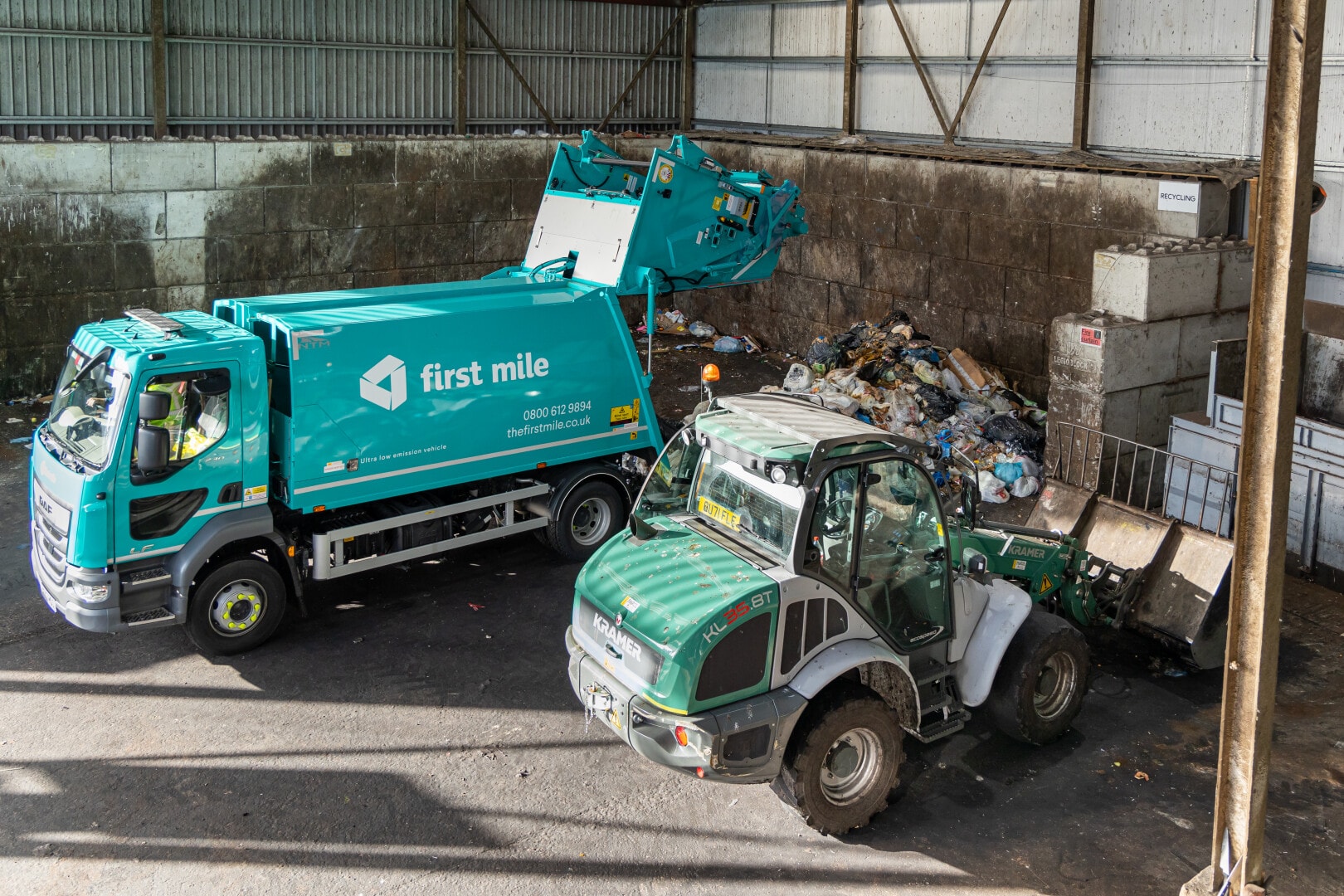In the UK, if you carry waste, you need a waste carrier license. This is a vital permit to ensure you comply with environmental regulations and stop illegal dumping. Many businesses, especially those in hospitality, retail and construction, are often unaware of the specific requirements for getting and keeping a waste carrier license.
What is a waste carrier license?
A waste carrier license is a legal requirement for businesses that transport, buy, sell, or dispose of waste in the UK. This license ensures that waste is handled and transported in a responsible and environmentally friendly manner.
The Environment Agency regulates waste carrier licenses, and businesses must register with the agency to obtain one and be compliant.
Who Needs a Waste Carrier License?

A waste carrier license is required for any business that transports waste, regardless of the type or quantity of waste. This includes businesses that:
-
Transport their own waste to different sites: This can include cleaning companies, retail stores, offices, restaurants or a sole trader who transports their own waste to a disposal site, waste transfer station or landfill.
-
Transport waste on behalf of others: Such as waste collection companies, haulage firms, skip hire businesses or a waste broker. This includes companies that sells waste or scrap metal.
Why do I need a Waste Carrier License?
A waste carrier license is a safety net against environmental harm. It ensures waste is handled properly and stops illegal dumping which can have serious consequences for the environment and your business.
Getting a license will also stop your business from getting into legal trouble as those who aren't compliant can face large fines.
Fines for not having a Waste Carrier License
Not having a valid waste carrier license can lead to hefty fines for organisations, this includes a fixed penalty of £300 and/or prosecution which can result in an unlimited fine. That's why it's vital to ensure your compliance documentation is up to date!
Types of Waste Carrier Licenses in the UK:
There are three types of waste carrier licenses in the UK:
-
Standard License: The most common one, for transporting all sorts of waste, general waste, construction waste, and commercial waste.
-
Exempt License: For businesses transporting limited amounts of waste, their own household waste or small amounts of waste from business activities.
-
Restricted License: For transporting specific controlled waste, hazardous materials like asbestos, chemicals, biomedical waste and electronic equipment.
Getting and Renewing a Waste Carrier License
-
Application: Fill in the application form on the Environment Agency’s online portal or by post.
-
Documentation: Provide information about your business, company registration number, contact details and what kind of waste you transport. You may also need to provide details of your vehicles and drivers.
-
Fees: Pay the relevant fees which vary depending on the type of license and size of your business. If you need to change registration tiers or update organisational details, you may need to apply for a new registration.
The Registration Process
Applying for a waste carrier license
To apply for a waste carrier license, businesses must follow these steps:
-
Determine which type of registration is required: There are two main types of registrations—upper tier and lower tier. Upper tier registration is necessary for businesses that transport, buy, sell, or dispose of waste as part of their main business activity. Lower tier registration is for businesses that handle waste as a minor part of their operations.
-
Gather required information: Businesses need to provide details about their company, including name, address, and contact information. Additionally, they must supply information about their waste management activities, such as the types of waste they handle and the vehicles used for transportation.
-
Submit an application: Applications can be submitted online or by post. A fee is required, which varies depending on the type of registration needed.
-
Wait for approval: The Environment Agency will review the application and may request additional information or clarification. Once approved, the business will receive a waste carrier license.
It’s important to note that the registration process may vary depending on the local authority or region. Businesses should check with their local authority for specific requirements and regulations to ensure full compliance.
Non-Compliance Consequences in Waste Management
Operating without a valid waste carrier license can lead to:
-
Fines: Large penalties from the Environment Agency which can range from a £300 fixed penalty upto tens of thousands of pounds.
-
Legal Action: Legal proceedings, and prosecution which can result in fines, imprisonment or both.
-
Reputation Damage: Damage to your business reputation and credibility which can lead to loss of customers and contracts.
Why Partner with First Mile

At First Mile we offer full waste management solutions so there's no need to worry about Waste Carrier Licenses. By partnering with us you can:
-
Reduce Admin: We’ll do the compliance paperwork for you, including free, digital waste transfer notes.
-
Safe and Responsible Waste Collection: Our flexible collections can be arranged 7 days a week at a time to suit you. We ensure that waste collection is done efficiently and reliably, keeping you informed about the accessibility of your bins on collection day.
-
Go green: Foster a sustainable environment working with a reputable waste management company that goes beyond collections. We also provide free engagement activities, workshops and resources to empower your team.
Get in Touch
Speak to our expert team to find out how First Mile can simplify your waste management, get compliant for upcoming legislation and reach your sustainability goals.


